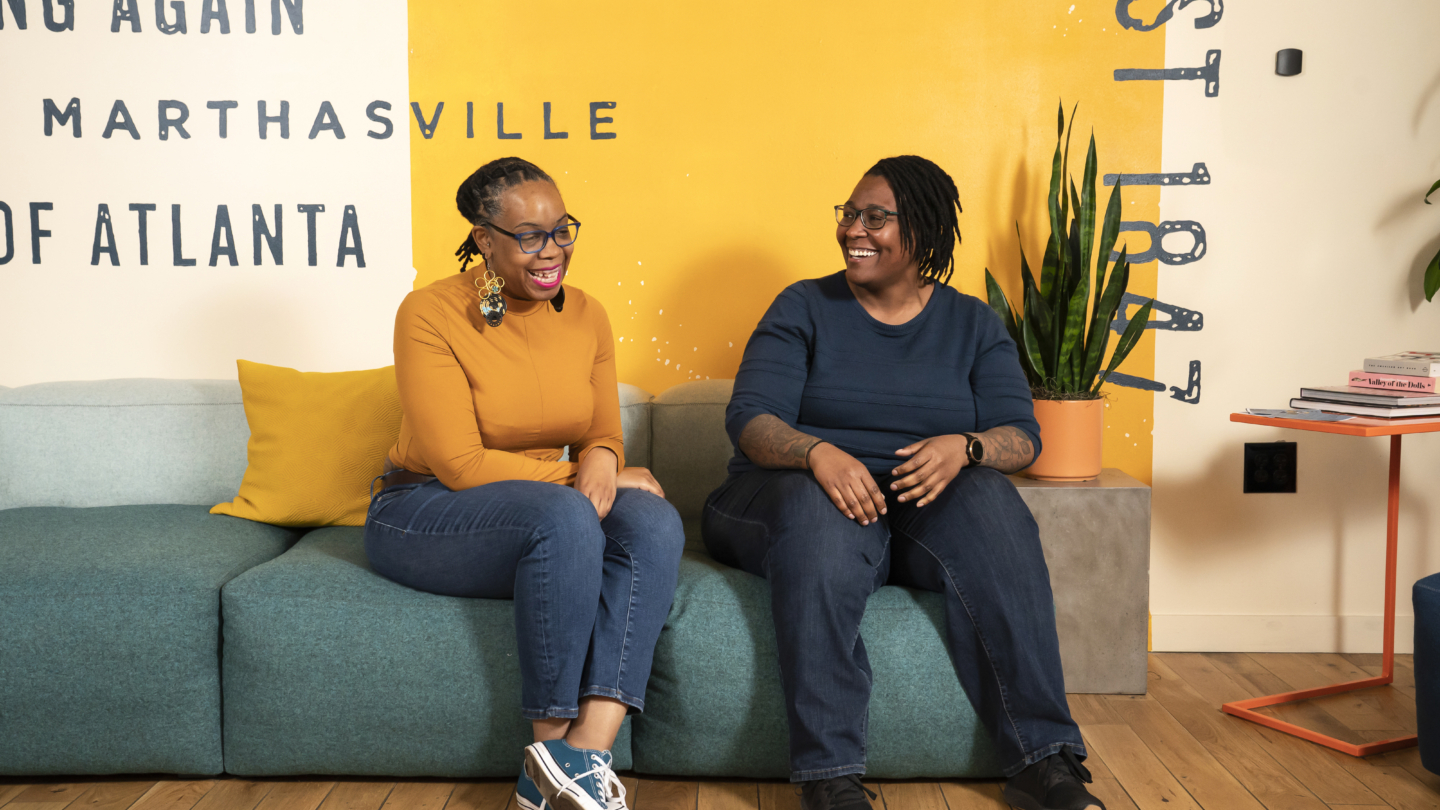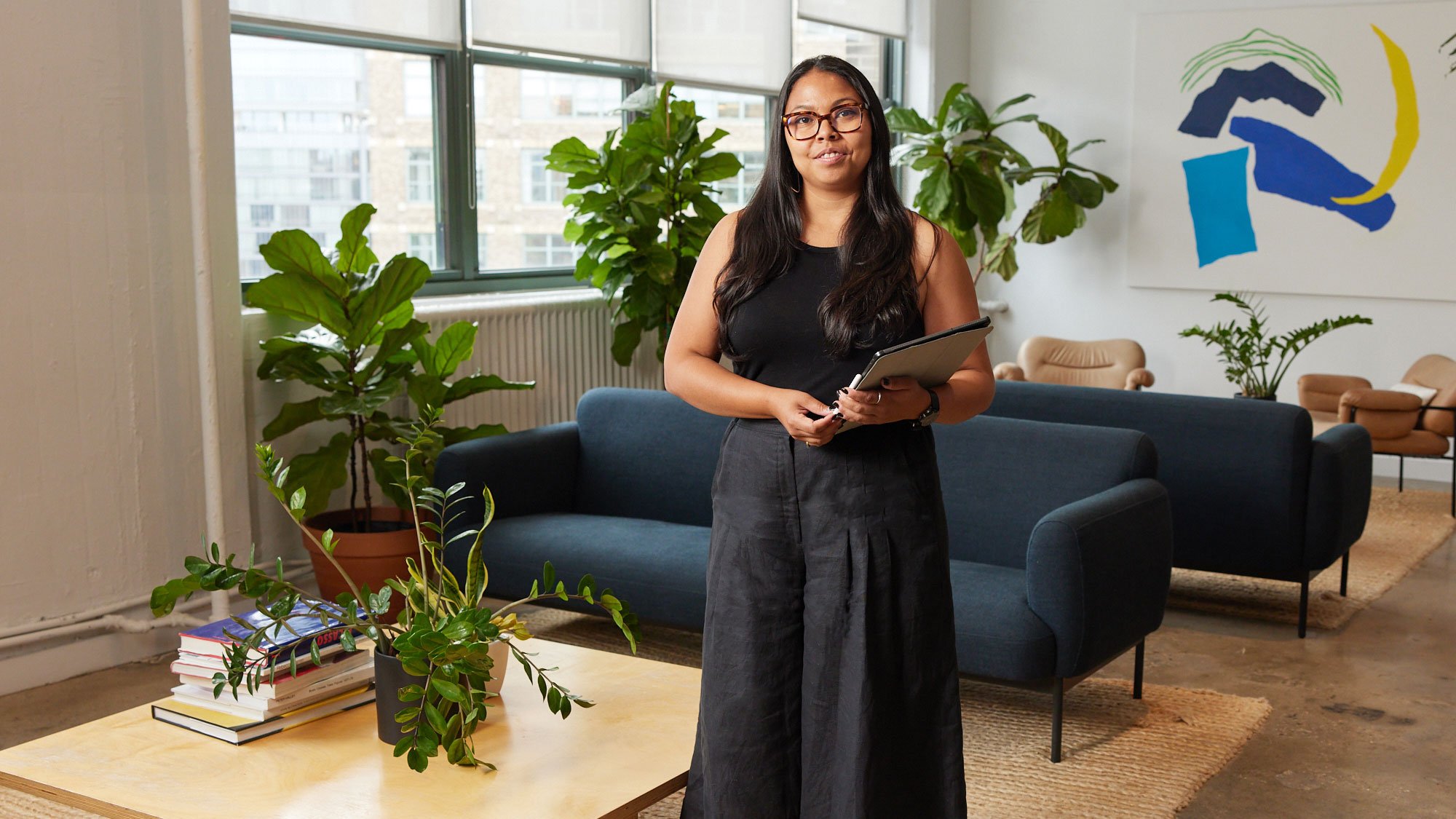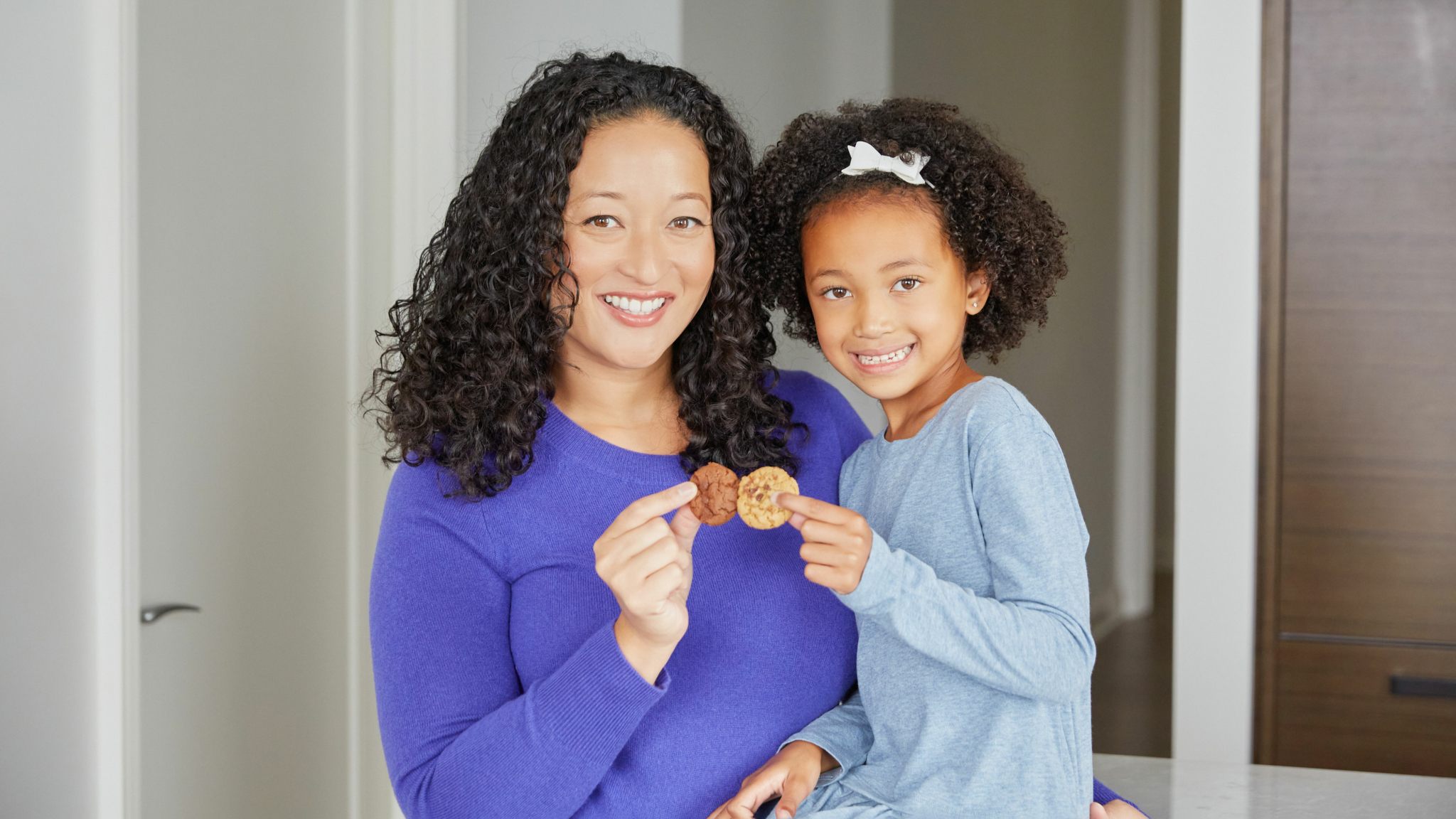Black business owners and workers too often face systemic biases: from underrepresentation in the boardroom to higher rates of unemployment. In Black-Owned and Proud, we profile innovative Black entrepreneurs building businesses and bringing much-needed change to the face of enterprise.
Black women are starting businesses at a higher rate than those in other demographics, according to a report by the Harvard Business Review. The study showed that 17 percent of Black women are starting or running a new business, compared to 15 percent of white men and 10 percent of white women.
However, that same report found that only 3 percent of Black women currently operate a mature (or established) business. There are several reasons for the drop-off, but chief among them is a lack of access—to funding, mentors, networks, and business strategy. And without these resources, it’s hard, if not downright impossible, for black women entrepreneurs to be competitive and successful.
Tamay Shannon and Kathryn R. Smith aren’t surprised by these statistics. They were already well acquainted with these obstacles when they decided to launch the Black Lady Business School (BLBS) in Atlanta during the pandemic. The mission of the member-driven organization is to drive up the number of successful, established Black female entrepreneurs.
“Black Lady Business School is different from other schools and networking organizations because we help women turn what they’re learning into real-world strategies, and help them execute on those strategies,” Smith says.
Improving the stats
Entrepreneurs who attend business school and also start traditional businesses are more likely to know the “tricks of the trade.” But Black women entrepreneurs are less likely to fall into those categories, and they tend to be underrepresented in business schools.
And while among women-owned businesses the most revenue is generated in wholesale trade, retail trade, and professional, scientific, and technical services, according to an American Express report, Black women are more likely to own service businesses like hair and nail salons and healthcare and social assistance businesses, which don’t generate as much revenue. Among other things, this can be a factor that lenders consider when considering to approve or deny a loan.
“Black Lady Business School is one part of an ecosystem of resources that can support women and minorities, helping them thrive in business,” says Smith. “Working together we can definitely make a difference, providing more visibility, access, and resources for women and minorities in entrepreneurship.”
Shannon and Smith are well equipped for this undertaking. Shannon is principal consultant of Atlanta-based W2S Marketing. With over a decade of marketing and social media experience, she’s worked with national and international brands, and provides marketing expertise to small businesses.
With WeWork, we can connect with and support our community on a different level.
Kathryn R. Smith, cofounder of Black Lady Business School
Smith, who has an MBA, brings over 15 years of marketing and communications experience to the organization. Having worked with several Fortune 500 companies (including AT&T and The Home Depot) before founding Walton Birch LLC in 2019, she helps entrepreneurs in areas including marketing, business analytics, website development, and corporate learning. At Black Lady Business School, Smith plays a pivotal role in developing the programming and the instructional design for the program.
Creating authentic spaces
Shannon and Smith point to two things that set this organization apart from others: authenticity and relatability.
“There aren’t many people who look like us who are doing what we’re doing, so it’s important for us to be present, to show up boldly and authentically, and to help create spaces and opportunities for people like us,” Shannon says.
As such, the co-owners choose underrepresented experts as well. “Our programs are full of colleagues, instructors, and speakers who look like [our clients] and have been through what they’ve been through,” Shannon says. “When women and underrepresented groups don’t have to worry about how they come across or think about code-switching, they can focus on absorbing knowledge and making connections.”

To create authentic spaces, the organization also needed an actual space, and winning WeWork’s Small Business Week contest played a critical role. Now operating out of a WeWork in Atlanta, the founders have a space to bring their community together and better support them in business.
“We have workspaces to collaborate on projects, and also spaces for members who need a quiet place to work,” Smith says. There’s even a mini studio space where instructors can record on-demand content. “With WeWork, we can connect with and support our community on a different level,” Smith says. And they both say that having coffee and cold brew on tap helps to energize them.
In 2022, BLBS launched its instructor program featuring experts and experienced entrepreneurs from across different industries providing educational content to help members grow and accelerate their business. In 2023, the organization plans to launch a cohort program, and is looking for Atlanta-based local experts and organizations to partner with.
“Black Lady Business School creates a space for entrepreneurs to show up as their authentic selves,” Shannon says. “In other organizations, this is a minor consideration, but BLBS places the emphasis on authenticity front and center.”
Terri Williams is a freelance journalist with bylines at The Economist, American Bar Association Journal, Time, USA Today, Yahoo, Realtor.com, Architectural Digest, Real Simple, Investopedia, and several other companies you’ve likely heard of.
Want to learn more about flexible work?













